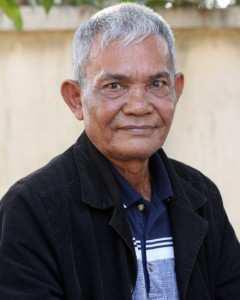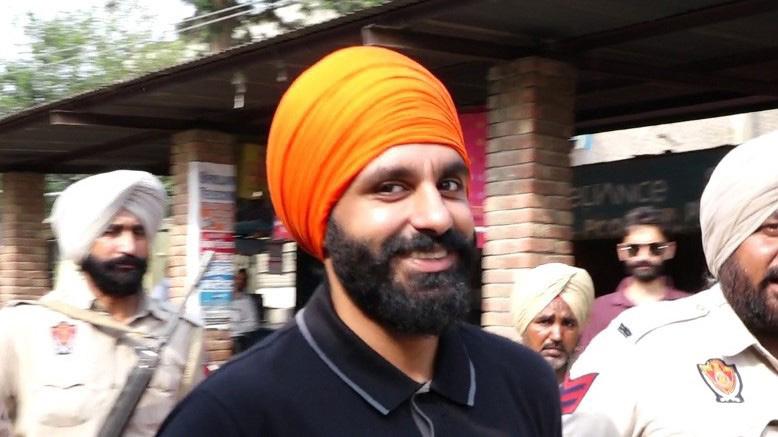
4 minute read
Survivor Story
We made noteworthy and verifiable contributions to global standard setting documents in relation to investigation and doc
Survivor story from TPO in Cambodia
Advertisement
“In 1976, I was arrested and heavily tortured at Kdaing Nhgear Pagoda. I was chained by the legs and tied up to a tree by the hands, exposed to the sun, rain and wind for many days. It was utterly inhumane. They accused me of being a CIA spy and subjected me to intense torture and interrogations. When they did not get the answers they wanted, they covered my face with plastic until I became unconscious, and then threw water on my face until I regained consciousness. Then they interrogated me again. They interrogated me like that three times per day for seven days.
After I had been imprisoned at the pagoda, I was transferred to another place, Kach Roteh, where I was imprisoned for three months. There I suffered even more.
It was worse than being dead. The living conditions in that prison were worse than for animals. I was chained by the hands and legs to other prisoners, so we could not get up, sit or walk, and we had to lie down in the mud. During the three months I was imprisoned there, I was interrogated, treated inhumanely and tortured every single day. On top of experiencing physical pains, we also suffered psychologically. We lived in fear and panic because every night people were taken to be tortured and killed […]. In the end there were only two people left whose names were the same, me and another Soeurn. We were the only ones who survived. The rest of the 46 prisoners were executed […].
Everything that happened to me during my imprisonment under that regime that lasted 3 years, 8 months and 20 days was unjust and inhumane to me, my family and my relatives, umentation of torture and rehabilitation for torture survivors in transitional justice processes.
but also to other victims and the Cambodian people […].
I kept this story hidden until recently because I thought that it would bring me even more suffering and shorten my life. But the opposite is true—when I disclosed my story with the support from TPO, I felt relieved. So, I strongly support the disclosure of stories about human rights violations during Khmer Rouge times and urge others to tell their stories. I hope that other victims also get the opportunity to disclose their story.”
Torture survivor rehabilitated at IRCT member TPO in Cambodia
Story credit: TPO Cambodia Photo credit: TPO Cambodia
In 2019 we completed 6 forensic evaluations, 11 trainings/workshops, 20 cases supported or intervened, 2 documentation tools
The IRCT concluded the global 3-year initiative to update the United Nations Manual on the Effective Investigation and Documentation of Torture - Istanbul Protocol (IP). We led this initiative in partnership with Human Rights Foundation of Turkey, Physicians for Human Rights, REDRESS and the four UN anti-torture bodies (UN Committee Against Torture, Special Rapporteur on Torture, UN Voluntary Fund for Victims of Torture, and the Subcommittee on the Prevention of Torture). It also involved more than 180 experts from 51 countries. This includes 47 experts from 32 of our member centres who participated in the process with their expertise and valuable local perspective. The IP (2020) incorporates updates and clarifications based on advancements in law, medicine and psychology over the last 20 years and represents two decades of lessons learned and best practices from IP implementation. The IP (2020) also has two new chapters: one provides documentation standards for general health professionals working in different settings; the second provides guidance on how to implement the IP. The IP (2020) provides significantly improved global standard setting in the field which will underpin and enhance national implementation efforts.
In July 2019, the UN Special Rapporteur on truth, justice, reparation and guarantees of non-recurrence issued his annual report to the Human Rights Council focusing on providing global policy guidance on domestic reparation programmes. Based on our input, the report includes a call for urgent action to provide rehabilitation to survivors of torture; improved processes to recognize survivor’s status’; and improved involvement and consultation of survivors from development to implementation and to the evaluation of reparations programmes. This creates an important platform for our members working in transitional justice to advocate for reform of the national reparations’ programmes. Furthermore, it will provide guidance for the development of future reparations programmes in the many countries that are currently undergoing political transition.

The case of Jagtar Singh Johal
Jagtar Singh Johal is a British citizen who was arrested in India and tortured to confess. In 2019 in collaboration with REDRESS, we conducted an expert review of Jagtar Singh Johal’s allegations as well as the UK Foreign & Commonwealth Office (FCO) consular reports on visits to Jagtar in detention. We issued public and confidential letters to the FCO and other stakeholders on Jagtar’s allegations, advocating for his access to medical. Persuaded by our letters, the FCO has begun to actively advocate to the Government of India for Jagtar to receive access to independent medical evaluation and for his allegations to be investigated; and the UN Special Rapporteur on Torture and three other Special Procedures also have raised concerns in Jagtar’s case to the Indian government, publicly releasing a communications statement.









